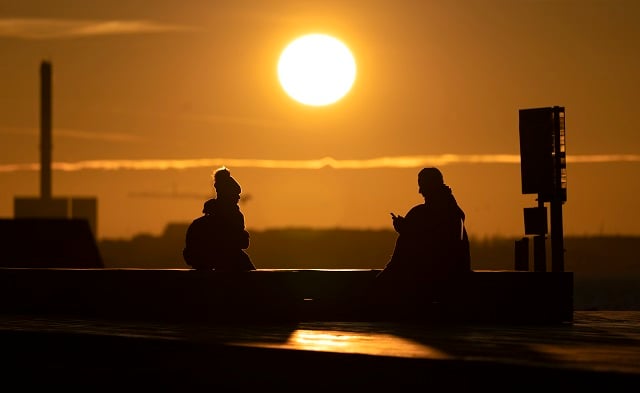This article is available to Members of The Local. Read more Membership Exclusives here.
As much as I love living in Sweden, come January, it's unfailingly one of the most depressing places I've ever been.
I've experienced the so-called January blues in other places, of course. In Scotland, for instance, it was demoralizing to watch the sun skim the horizon for the few precious hours of daylight. In Chicago, hibernation seemed the only option when faced with mountains of snow and temperatures in the negative teens. Even in Texas and Spain, where the sun can be found in abundance in January, the post-holiday season could be tough.
In Sweden, all of these factors and more seem to exist at once.
Not only is it dark when I take the children to school and start my work day and dark when I pick them up, it's an almost-perfect pitch blackness now that all the Christmas lights are gone. As for the sun, although each day there's another few minutes of daylight, it's often hard to see it behind the ever-present wall of grey clouds.
Along with the Christmas decorations that kept the darkness at bay, all the joyful festivities and distractions that served the same effect for the winter blues have also now disappeared.
No more Christmas dinners and markets to look forward to and pass the hours. No more shopping, gift wrapping, baking and cooking to keep minds, hands and restless children busy and happy. Just cold, bleak darkness. Especially for those of us who live in the middle of nowhere and are disinclined to winter sports, this means there's not a whole lot to do outside the house.
![]()
Winter can feel isolating for international families in Sweden. Photo: Per Pixel Petersson/imagebank.sweden.se
As much as we love family outings of sledding and occasional winter hikes, we have zero interest in skiing, which is – unfortunately for us – one of the main winter activities where we live. On the other hand, some of our favorite family activities can only be found in metropolitan areas, all of which are at least an hour or two away. Such a drive is not a big deal at other times of the year, but the typically horrible weather and inevitable back-to-school illnesses of January can make it next to impossible.
In addition to illness, we're also all tired, moody, and – quite frankly – getting on each other's nerves thanks to cabin fever. As wonderful as it is to spend so much quality time together as a family, with no relatives nearby to lend a hand and provide a break for both adults and children, it sometimes feels like going back to work and school is the only opportunity to get some time and space to ourselves.
All of these things make for a difficult and dreary time of year, to be sure. But for me, they also serve to heighten and amplify the challenges we face throughout the year as an immigrant family in Sweden.
MORE FOR MEMBERS:
- What happens when you move across the world for love, then break up?
- Networking in Sweden: the steps to making valuable professional connections
- How my perfect picture of Sweden needed adjustment
It is now, for instance, that I feel the distance from close friends and family most acutely. More even than during the holidays, when the joys and activities of the season could counter sad and wistful feelings. Now, with darkness and isolation, those feelings tend to run amok. I long more than usual for the literal and emotional warmth that are in such short supply right now. Living far away from loved ones is never easy, even when you do it voluntarily. Right now, it's hard as hell.
At times I wonder if people like us aren't just a little bit crazy to keep moving forward when our emotions pull us so strongly backwards.
As immigrants, our situations and experiences are unique. Our lives in Sweden are as distinct from one another's as those we left behind. We are not a homogeneous group. But, at the very least, most of us who have come here from other countries have had to make some major adjustments. Maybe more than we bargained for. Those who came here involuntarily face even more challenges.
These realities are a big part of what helps me get through difficult times, like January in Sweden. It is when I struggle the most that I think about the experiences of others and wonder how they are managing.
Just knowing that, though I often feel alone, I am not alone in feeling these things and coping with them, helps me get through them. And because the feelings are only temporary and almost entirely predicated on external factors, they pass as those factors fade. Come February and March, the light grows increasingly visible and my sense of isolation diminishes.
For now, however, it's still January in Sweden. And to anyone else struggling to get through it, just know that you are not alone.
Read more from her family and history column on The Local here.


 Please whitelist us to continue reading.
Please whitelist us to continue reading.
Member comments